NEET 2025 Exam Strategy: Master Biology, Chemistry & Physics
Proven strategies and resources to ace NEET 2025 with a 600+ score.
The National Eligibility cum Entrance Test (NEET) functions as the entry point toward obtaining medical college admission in India. The 1.5 million students who enter the competition need to balance disciplined effort with strategic planning while making smart resource decisions for them to score about 600 points. The guide offers essential high-yield approaches coupled with recommended resources along with time management techniques and test-day practices, which will boost your success in Biology, Chemistry and Physics studies.
Understanding the NEET Structure
NEET 2025 is divided into three subjects with the following weightages:
Biology: 50% (360 marks)
Chemistry: 25% (180 marks)
Physics: 25% (180 marks)
Your higher Biology course grade gives you an advantage in competitive exams since it earns the most points in the assessment. A balanced preparation between Chemistry and Physics should be maintained along with your significant focus on Biology to achieve success.
Biology: The Backbone of NEET
Why Biology is Critical
About fifty percent of the exam's total mark distribution belongs to Biology, which indicates its significant value. A strong conceptual basis, in addition to committed review practices, leads to increased confidence while obtaining crucial exam points.
Key Topics to Focus On
Prioritize these high-yield topics:
Genetics & Evolution: Approximately 18–20 questions.
Human Physiology: Around 12–15 questions.
Ecology: About 10–12 questions.
Plant Physiology: Nearly 8–10 questions.
Reproduction: Roughly 8–10 questions.
Study Strategies for Biology
NCERT is King
Almost all questions in NEET Biology originate from NCERT textbooks. Students should read each line while paying attention to both diagrams and tables as well as chapter summaries. Students should select important notes for clear reference during testing periods by creating flashcards.
Diagram Mastery
Visual learning is essential. Engage in frequent activities that involve identifying key structures of the human heart along with the kidney and plant anatomy as well as additional essential shapes. Draw the sketches multiple times from memory before confirming them with related textbooks or online materials.
Mnemonic Devices and Memory Tricks
CreateMemory Aids through concise acronyms to learn both processes and different classifications. Users should create their own memory aids which help them remember vital information in demanding circumstances.
Regular Revision and Self-Testing
Schedule dedicated educational time to look over all previously taught material. The utilization of self-testing flashcards together with online quizzes and group study discussions allows students to pinpoint their knowledge gaps before more subjects are studied.
Practice with Previous Year's Papers
Assessing past NEET Biology exams reveals frequently appearing themes and crucial topics which improve preparation for identical questions.
Common Mistakes to Avoid
Overlooking NCERT content.
Neglecting diagram-based questions.
Rushing through topics like Biotechnology without adequate revision.
Failing to revise consistently for long-term retention.
Chemistry: Balancing Theory and Calculations
Chemistry is divided into Physical, Organic, and Inorganic sections, each requiring a different study approach.
Breaking Down the Sections
Physical Chemistry
Focus: Chemical Kinetics, Electrochemistry, and Thermodynamics.
Strategy: Regular practice of numerical problems is key. Maintain a formula sheet and revise it daily.
Organic Chemistry
Focus: Reaction mechanisms, named reactions (such as Aldol Condensation), isomerism, and reaction pathways.
Strategy: Create flowcharts and reaction maps. Practice a variety of problems to familiarize yourself with different question types.
Inorganic Chemistry
Focus: Coordination compounds, crystal field theory, and periodic table trends.
Strategy: Use memory aids like charts and flashcards. Regular revision is crucial to retain details.
Additional Resources for Chemistry
Books: NCERT Class XI & XII, OP Tandon for Physical and Inorganic Chemistry, Morrison & Boyd for Organic Chemistry.
Online Platforms: Khan Academy for video explanations, Toppr for practice problems.
Common Mistakes in Chemistry
Ignoring the need for conceptual clarity in Physical Chemistry.
Underestimating detailed practice in Organic Chemistry.
Failing to revise Inorganic topics regularly.
Physics: Conquer Problem-Solving with Confidence
Students find physics to be the most demanding subject because problem-solving requires numerical approaches. Using the proper method transforms what seems to be a difficult aspect of physics into an advantageous advantage.
Key Topics for NEET 2025
1. Mechanics (15–18 questions):
Focus on Newton’s Laws, Projectile Motion, and Circular Motion. A strong grasp of these fundamentals is essential for tackling complex problems.
2. Electrodynamics (10–12 questions):
Concentrate on electric circuits, magnetic fields, and electromagnetic induction. Practice drawing circuit diagrams and calculating equivalent resistances.
3. Modern Physics (6–8 questions):
This section includes atomic models, the photoelectric effect, and nuclear physics. Both theoretical and numerical aspects need attention.
4. Optics & Waves (5–7 questions):
Understand light behavior, interference, diffraction, and wave motion. Regularly derive formulas and solve problems involving lenses and mirrors.
Effective Study Strategies for Physics
Derivation and Conceptual Clarity:
Rather than rote memorization, derive key formulas (such as the Lens Maker’s Formula or equations of motion) to deepen your understanding.
Daily Numerical Practice:
Solve 20–30 problems daily to build speed and minimize calculation errors during the exam.
Dimensional Analysis and Unit Conversion:
Ensure you’re comfortable with SI units and conversion techniques. This skill is critical for subjects like Thermodynamics and Electrodynamics.
Use of Visual Aids:
Sketch graphs, diagrams, and circuit layouts to visualize concepts and simplify complex ideas.
Mock Tests and Timed Sessions:
Regularly schedule timed practice sessions to simulate exam conditions, helping you build endurance and improve accuracy.
Additional Resources for Physics
Books: NCERT Class XI & XII, HC Verma’s Concepts of Physics, and DC Pandey’s Objective Physics.
Online Platforms: Interactive tutorials and problem-solving sessions are available on sites like Brilliant.org and Khan Academy.
Common Pitfalls in Physics
Over-relying on memorization instead of understanding derivations.
Insufficient practice of numerical problems leads to time management issues.
Neglecting less frequent topics can still prove challenging under exam conditions.
General Preparation Tips for NEET 2025
A well-rounded preparation strategy goes beyond subject-specific studies. Here are some additional tips to ensure comprehensive readiness:
Creating a Structured Study Plan
Daily Routine and Time Allocation: Aim for 6–8 hours of study daily, dividing time among Biology, Chemistry, and Physics. Allocate extra time to weaker subjects.
Weekly Goals and Milestones: Break down the syllabus into manageable sections and set daily/weekly targets. Regularly review your progress to ensure you stay on track.
Incorporate Short Breaks: Techniques like the Pomodoro method (25 minutes of study followed by a 5-minute break) can enhance focus and prevent burnout.
Utilizing Mock Tests and Self-Assessment
Scheduled Full-Length Tests: Take a full-length mock test each week (using platforms like Allen NEET Explorer or Aakash iTutor) to simulate exam conditions.
Performance Analysis: After each test, analyze your performance to identify recurring mistakes and refine your study plan accordingly.
Topic-Wise Practice: Dedicate sessions to solving problems for a single subject to improve competence and speed.
Health and Mindfulness
Adequate Sleep and Rest: Ensure 7–8 hours of sleep daily to maintain a sharp, agile mind.
Balanced Diet and Hydration: Include brain-boosting foods (nuts, fruits, leafy greens) in your diet, and keep hydrated.
Stress Management: Practice mindfulness or meditation, along with simple breathing exercises, to reduce exam-related stress.
Effective Revision Techniques
Consolidate Your Notes: After each chapter, create summaries or flashcards that highlight key concepts and formulas for quick review.
Group Study Sessions: Discuss topics with peers to clarify doubts and reinforce learning.
Regular Flashcard Reviews: Use flashcards for daily revision, especially during short breaks in your schedule.
Exam Day Strategy
Your preparation must extend to the day of the exam. A clear strategy on exam day can significantly impact your performance.
Before the Exam
Night Before Preparation:
Avoid last-minute cramming. Instead, review your summarized notes and ensure all necessary items (admit card, stationery) are ready.
Healthy Routine:
Start the day with a light, nutritious breakfast. A brief walk or relaxation session can help reduce anxiety.
Arrival and Setup:
Arrive early at the exam center to settle in and mentally prepare for the exam.
During the Exam
Time Management:
Quickly scan the paper and begin with the questions you are most confident about. This helps secure early marks before tackling tougher questions.
Answering Strategy:
Avoid getting stuck on a single question—if a problem seems too time-consuming, mark it and return to it later if time permits.
Maintain Calm:
Use deep breathing techniques if you feel overwhelmed. Keeping calm will help you think clearly and manage time efficiently.
Post-Exam Reflection
Self-Assessment:
Once the exam is over, take a few minutes to reflect on your performance. Note areas where you felt underprepared to improve in future attempts or further studies.
Leveraging Online Resources and Coaching
Several digital platforms exist exclusively to assist students with their NEET preparation in the present digital era. The available technology offers additional platforms that boost your learning method while supplying supplementary educational resources.
Benefits of Online Resources
Personalized Coaching:
Users of Skoodos Bridge can receive personalized guidance, which includes individual mentoring sessions and sessions to address doubts.
Interactive Learning Modules:
Students gain better comprehension of complex subjects through pictures and videos coupled with computer-based practice assessments, which offer interactive explanations that are easy to understand.
Peer Networks and Discussion Forums:
Your understanding will benefit you when you interact with other aspirants through both group study sessions and online forums.
Choosing the Right Coaching Platform
Evaluate Reviews and Success Rates:
Select platforms with proven track records and positive feedback from previous students.
Access to Updated Syllabus and Exam Patterns:
Ensure the platform’s resources are in line with the latest NEET syllabus and any changes in exam patterns.
Affordable and Flexible Options:
Look for cost-effective solutions that offer flexibility in scheduling and resource access without straining your budget.
Conclusion: Bridge Your Success with Skoodos
Students who want to succeed in NEET 2025 should use smart resource planning as well as develop strict study strategies. Students who study NCERT materials combined with practice routines and planned revisions will earn at least 600 marks in their NEET exams. Skoodos Bridge platform serves students by finding perfect matches between them and top coaching centers and their selected mentors who provide interactive learning materials. You have the potential to convert medical desires into reality through the combination of updated NEET syllabus learning with study balance and utilization of both offline and online educational resources.
As your last piece of advice, refine your approach continually using results from practice tests and self-evaluations. Your future success in NEET 2025 demands both determination and proper guidance for achievement.
FAQs
Q1: What is NEET?
A: The National Eligibility cum Entrance Test serves as the unified India-wide examination for medical and dental undergraduate program admission.
Q2: How important is NCERT for NEET preparation?
A: The NCERT books serve as essential educational material for Biology because they represent an extensive source of questions that appear in examinations.
Q3: How can I effectively manage my study time?
A: The combination of daily scheduling and Pomodoro methods achieves improved results because they help focus on subjects that need greater attention.
Q4: What role do mock tests play in preparation?
A: Students improve their performance through mock tests because these assessments replicate exam conditions which aid understanding of their abilities and help them solve problems quickly and accurately.
Categories
Archives
- October 202519
- September 202520
- August 202522
- July 202524
- June 202524
- May 202526
- April 202530
- March 202523
- February 202513
- January 202523
- December 202429
- November 20246
- September 20245
- August 202422
- July 202415
- May 20249
- June 202424
Similar Posts

Gaming Meets Medicine: VR Therapy Careers for NEET Aspirants
by Skoodos Bridge

WhatsApp Group Study: Boost Your Competitive Exam Preparation
by Skoodos Bridge

Drone Engineering Careers: Aerospace Pathways, Exams & Job Opportunities
by Skoodos Bridge
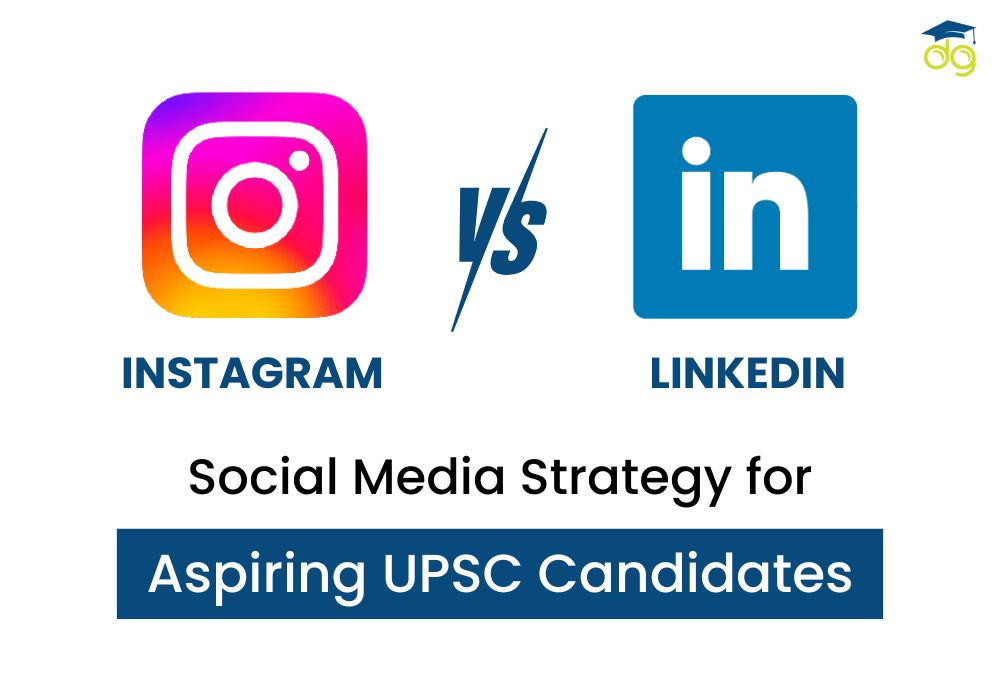
Instagram vs LinkedIn: Smart Social Media Strategy for UPSC Aspirants
by Skoodos Bridge

YouTube Shorts for Revision: Micro-Learning to Memorize Formulas Quickly
by Skoodos Bridge
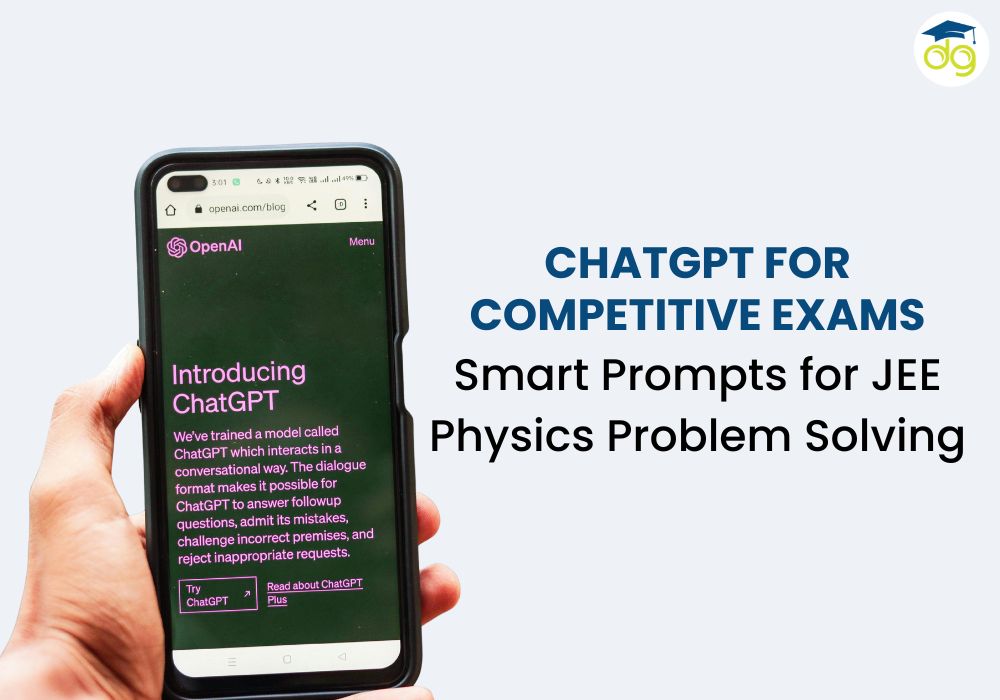
ChatGPT for JEE Physics: Smart Prompts to Master Problem Solving
by Skoodos Bridge

Space Technology Careers: ISRO Opportunities Beyond Aerospace Engineering
by Skoodos Bridge
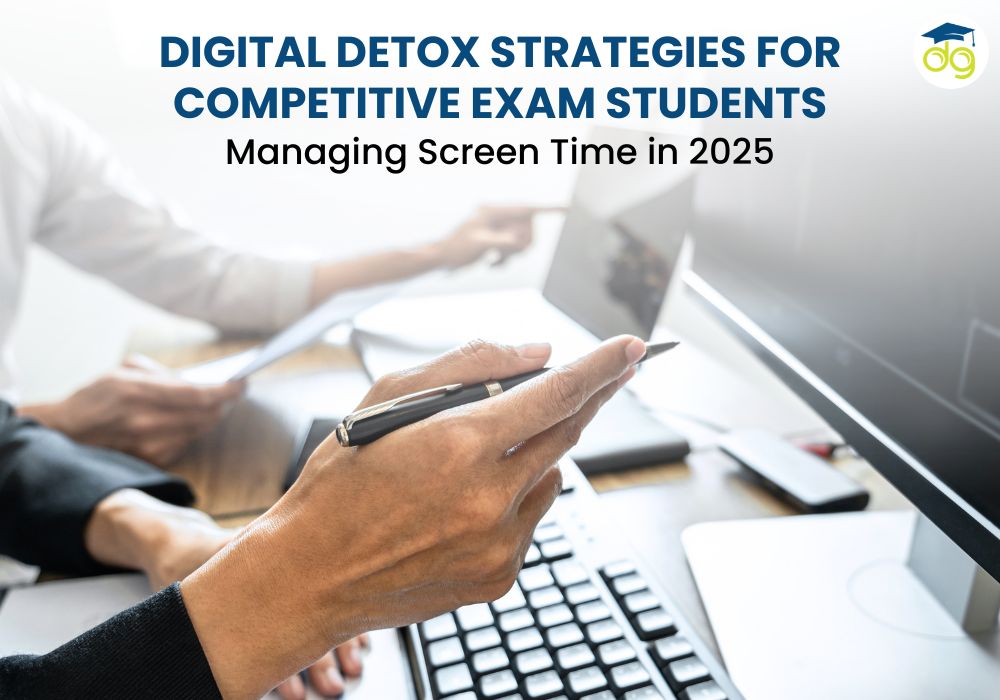
Digital Detox Strategies for Competitive Exam Students in 2025
by Skoodos Bridge
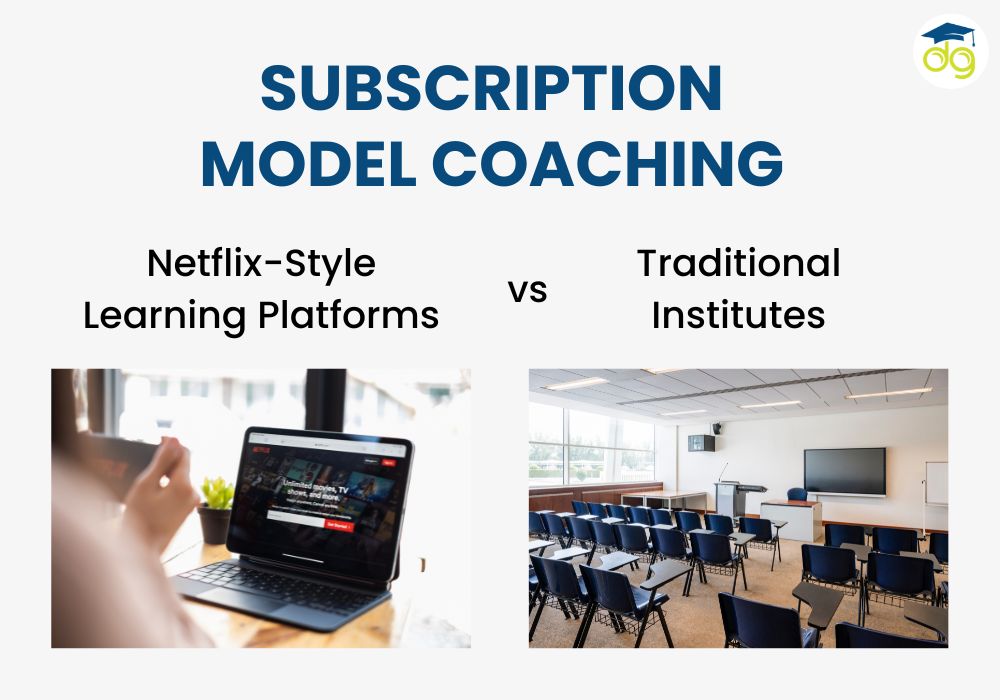
Subscription Model Coaching vs Traditional Institutes: Netflix-Style Learning
by Skoodos Bridge
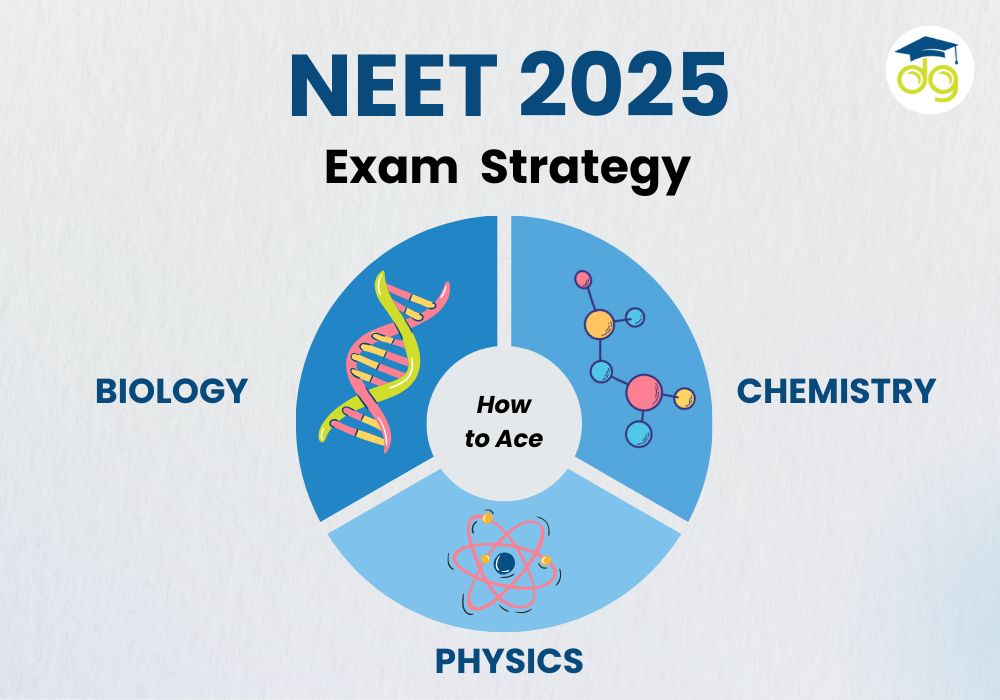

Leave a Comment